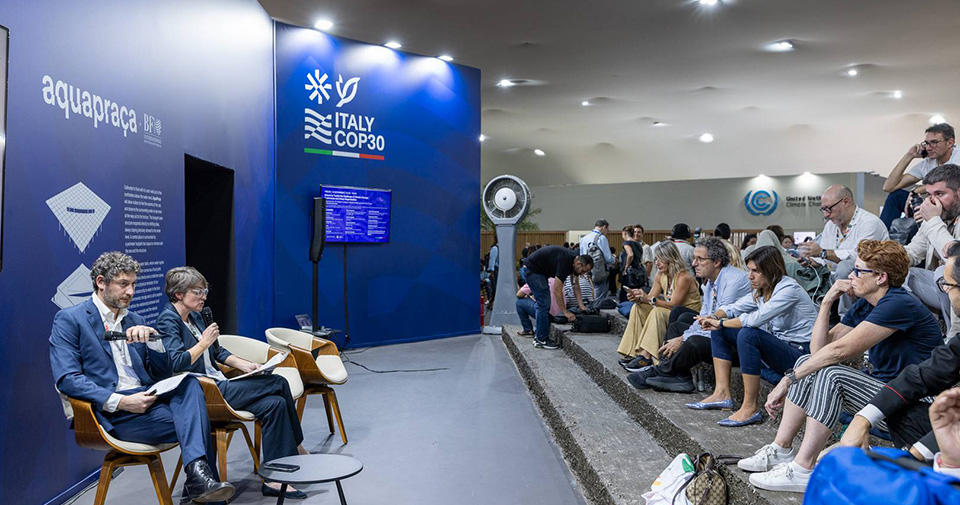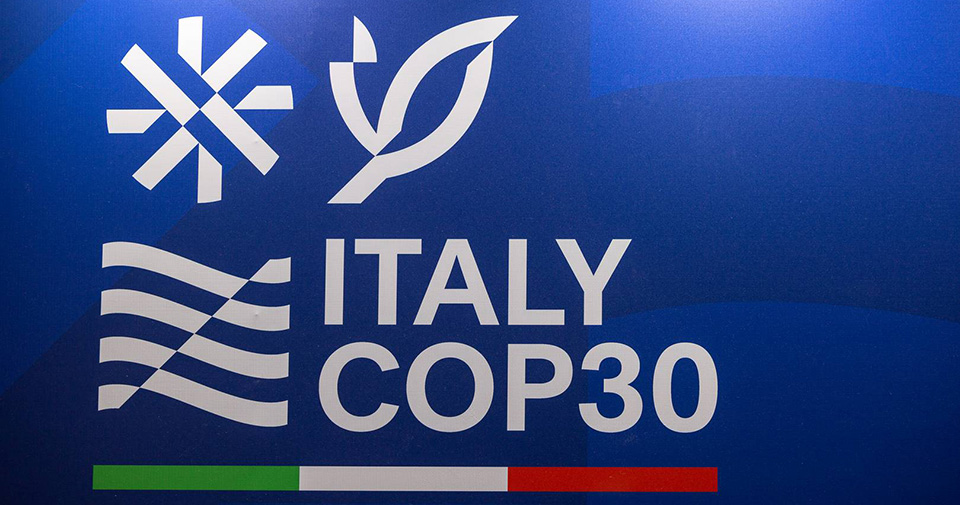As part of the initiatives promoted by the Italian Pavilion at COP30, held in Belém, Brazil, from 10 to 21 November, the UN Global Compact Network Italy, in collaboration with RemTech Expo, organised the event “Nature to Tackle the Climate Change Challenge: Businesses and Urban Regeneration.” In particular, the session curated by the Italian Network provided an opportunity to present the study “Italian Companies and the Role of Natural Capital Protection in the fight against Climate Change,” a research carried out in 2025 in collaboration with The European House – Ambrosetti and Ca' Foscari University of Venice, with the support of Edison SpA.
The meeting in Belém opened with institutional greetings from Francesco Corvaro, Special Envoy for Climate Change for Italy, and Alessandro Guerri, General Manager, Directorate-General for European, International Affairs and Sustainable Finance, Ministry of Environment and Energy Security of Italy.

Daniela Bernacchi, Executive Director of UNGCNI, introduced the research by noting that, according to scientific data, our economic system is operating beyond our Planet's safety limits—particularly with regard to climate change, biodiversity loss, and the degradation of oceans and soils. Considering that approximately 50% of global GDP depends on the resources and services provided by nature, working and investing in the protection of natural capital and biodiversity conservation can no longer be seen merely as a moral choice but as a strategic imperative for economic actors.
Professor Elena Semenzin outlined the scientific context of the research, highlighting in particular the link between climate change and the loss of natural capital, and emphasising the importance of involving universities as strategic actors in supporting the process of economic transformation. Carlo Cici, Partner and Head of Sustainability at The European House – Ambrosetti, then presented several aspects of the research, including the survey methodology, sample selection, and the main findings for both companies and financial players. He noted that, while awareness and attention to the protection of natural capital as a key component of sustainable business strategies are increasing, barriers such as the lack of metrics and standards, skills gaps, and high costs continue to slow progress.
Elena Guarnone, Head of Sustainability at Edison, contributed by sharing her company's experience, noting that Edison is already deeply involved in the energy transition. She highlighted how the protection of natural capital is one of the four pillars of the company’s sustainability strategy and presented several concrete biodiversity protection projects that illustrate Edison’s commitment.
In conclusion, Daniela Bernacchi presented recommendations for businesses—one of the main objectives of the research—summarised into four key actions: analyse (map dependencies and impacts); target (define ambition and select a small number of high-impact actions); equip (develop skills and explore technologies); engage (create strategic multi-stakeholder alliances). As the Executive Director underlined, the challenge will be to extend this growing focus on nature-related issues to the entire economic system, stressing both the opportunity and responsibility to act to build a prosperous and truly sustainable economy.
At this link, you can download the research.
Image source: italycop30.org

